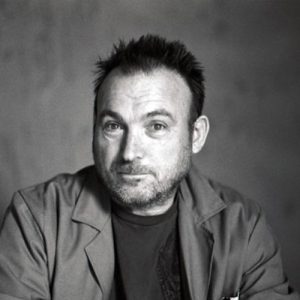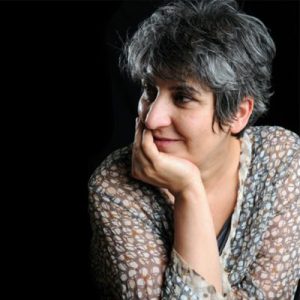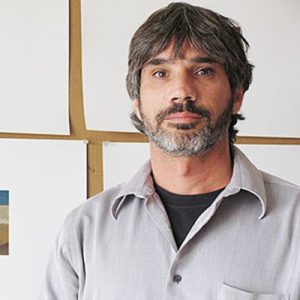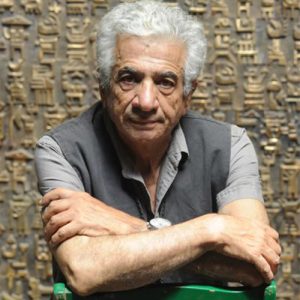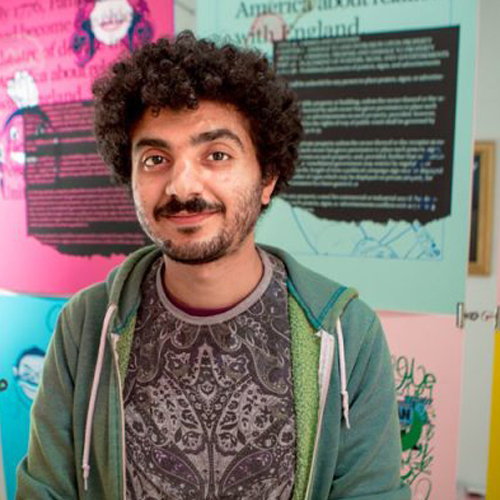
Ganzeer is a versatile Egyptian artist, notable for his socio-political messages. Much like the Tunisian artist Nadia Khiari he rose to prominence during the 2011 Arab Spring, when many authoritarian regimes in North Africa and the Middle East where toppled after decades of oppression. Together with fellow spirits he made several graffiti murals which criticized the Egyptian government. Since 2014 he lives in self-imposed exile in the United States, where he continues to – literally and figure of speech – draw attention to the situation in Egypt, but also created artworks which criticize the West. Despite being mostly associated with graffiti art Ganzeer has also created a few one-shot comics and a full-blown dystopian graphic novel: ‘The Solar Grid’ (2019).
He was born in 1982 in Giza as Mohamed Fahmy. Fahmy loved comics as a child and always wanted to become a cartoonist. Among his graphic influences are Ammar Abo Bakr, Frank Lloyd Wright, Philippe Starck, Dieter Rams, James Harvey, Milton Glaser, Paul Rand, David Hockney, Warren Ellis, Alan Moore, Neil Gaiman, Sergio Toppi and Mike Mignola. Fahmy once e-mailed Warren Ellis to ask for creative advice and whether he should make superhero comics, to which the author replied: “Do your own thing”. The young Egyptian followed his advice and tried to study art, but failed to pass the entrance exam. He studied at a business school instead, yet returned to graphic design after graduation. In 2005 Fahmy and his friends set up a multidisciplinary studio named “Ganzeer”, the Arabic word for “(bicycle) chain”. In a 7 November 2017 interview with Farah Safie on her blog he explained that a bicycle chain connects the pedals to the wheels, thus making motion possible, although the source of motion comes from elsewhere. Many people who visited the place often addressed Fahmy as ‘Ganzeer’, thinking he named the shop after himself. Out of convencience Fahmy eventually signed all his artistic work under the name Ganzeer, while signing his commercial work with the name “Mofa”. By 2010 he mostly abandoned advertising art and therefore used Ganzeer as his permanent pseudonym.
In 2011 many countries in North Africa and the Middle East experienced revolutions, dubbed the “Arab Spring” in the press. In Tunisia, Libya, Yemen and Egypt entire governments were toppled after years of oppression. Egyptian president Hosni Mubarak was forced to abdicate, but not after a long violent struggle to maintain his power. In the midst of these events, on 25 January 2011 to be precise, Ganzeer became a politically conscious artist. He and his fellow artistic friends – people like El Teneen, Adham Bakry, Mohamed Hassan and Abdullah Ragab – started creating mural paintings, posters and stickers which criticized the government and paid homage to the victims of the regime. While British graffiti artist Banksy was an important inspiration, Ganzeer has always stressed that they weren’t interested in artistic self-expression, more with voicing protest and the opinion of the man in the street. On the same token he dismisses the monicker “street artist” to describe his artistic profession, because graffiti is just one of several outlets he uses. In his opinion he is a self-described “contingency artist” – one who uses whatever means necessary to create his work and message.
In March 2011 Ganzeer and a couple of volunteers he gathered together on Twitter created a huge wall painting of a 16 year-old boy who was shot by the police just days earlier. The most iconic mural by Ganzeer depicts a a huge tank threatening a bicyclist with a tray of bread (a pun on the Egyptian word “life”) on his head. One famous poster by his hand depicts a masked head whose mouth is gagged. The work was subtitled “the Freedom Mask. Greetings from the Supreme Council of the Armed Forces to the people. Now available on the market for a limited time.” On 26 May 2011 Ganzeer was arrested along with film director Aida El-Kashef and musician Nadim X on the suspicion of “being spies”. Thanks to support on social media they were quickly released without official charges. The next day people had duplicated his ‘Freedom Mask’ image on many posters, stickers and T-shirts, all over the Tahrir Square in Cairo.



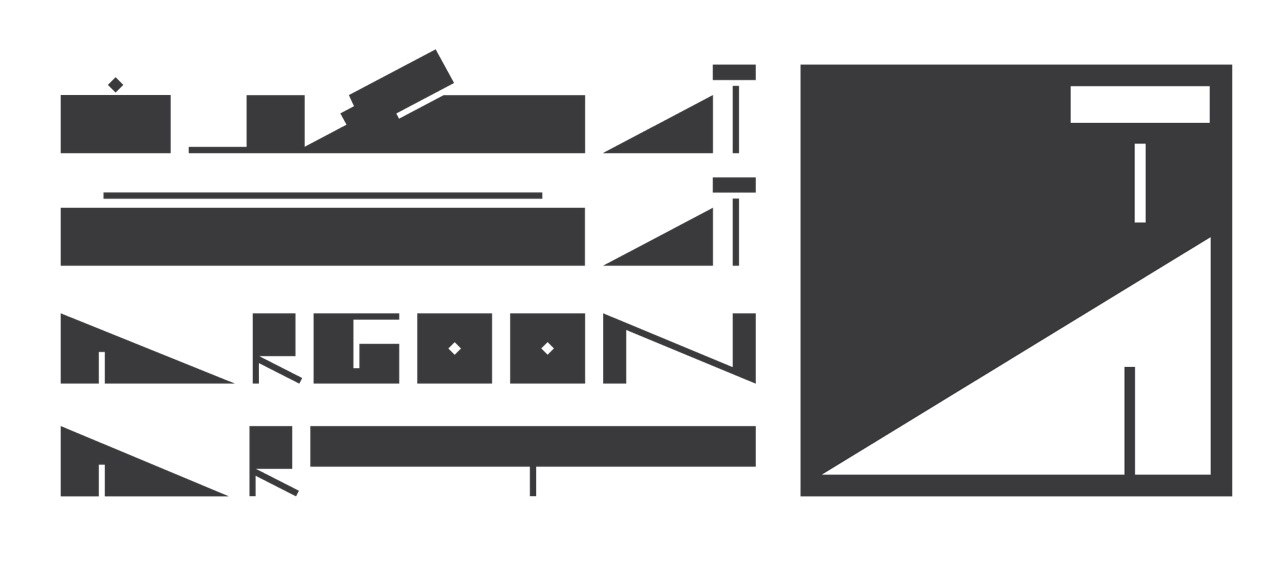 Argoon Art | Sell online in the simplest way possible
Argoon Art | Sell online in the simplest way possible

